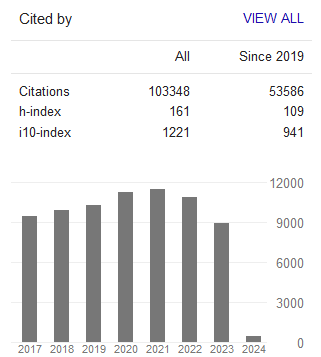Proposition of an Interactive Process Approach in Exploring the Relationship between Corporate Social Responsibility (CSR) Strategy and Perceived CSR: Case of ExxonMobil in Nigeria’s Petroleum Industry
- Ibe Chidi Michael
- Wang Zhi Min
- Kwek Ling
- Daniel Yii Shiing Kai
Abstract
Business organizations implement corporate social responsibility (CSR) initiatives with an aim of generating business value. This has often been noted as a means of ensuring sustainable development (SD) in the relationship between business and society. However, some recent cases have produced outcomes that are contrary to this view. This is evident in the Nigerian petroleum industry where multi-national oil companies like Exxon Mobil have contributed extensively to their host-communities without generating positive outcomes based on the implemented CSR initiatives. Inspite of their contributions, the stakeholders in their host communities engage in activities that threaten their sustainable development. This outcome reflects a gap in the theory and practice of CSR. This gap was explored through critically examining the case of ExxonMobil with focus on their CSR activities and outcomes. It was revealed that the focus of extant literature on corporate perspective in CSR implementation and the extensive empirical focus on the direct relationship between CSR strategy and perceived CSR lead to a narrow view of the CSR concept. The need to adopt an interactive process approach through looking at the antecedents and outcomes in the relationship between CSR strategy and perceived CSR was proposed as a means of grasping the nature of outcomes generated from CSR.- Full Text:
 PDF
PDF
- DOI:10.5539/ijbm.v10n2p186
Journal Metrics
Google-based Impact Factor (2023): 0.86
h-index(2023): 152
i10-index(2023): 1168

Index
- Academic Journals Database
- AIDEA list (Italian Academy of Business Administration)
- ANVUR (Italian National Agency for the Evaluation of Universities and Research Institutes)
- Berkeley Library
- CNKI Scholar
- COPAC
- EBSCOhost
- Electronic Journals Library
- Elektronische Zeitschriftenbibliothek (EZB)
- EuroPub Database
- Excellence in Research for Australia (ERA)
- Genamics JournalSeek
- GETIT@YALE (Yale University Library)
- IBZ Online
- JournalTOCs
- Library and Archives Canada
- LOCKSS
- MIAR
- National Library of Australia
- Norwegian Centre for Research Data (NSD)
- PKP Open Archives Harvester
- Publons
- Qualis/CAPES
- RePEc
- ROAD
- Scilit
- SHERPA/RoMEO
- Standard Periodical Directory
- Universe Digital Library
- UoS Library
- WorldCat
- ZBW-German National Library of Economics
Contact
- Stephen LeeEditorial Assistant
- ijbm@ccsenet.org
